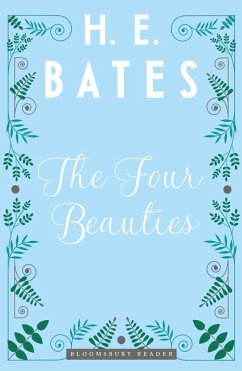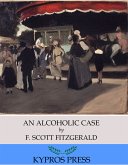First published in 1968, The Four Beauties is Bates's last collection of novellas offering a mixture of comedy, adventure, a semi-autobiographical piece and an exploration of a dark love triangle.
'The Simple Life' is set at a country cottage offering the joys of a humble existence, and focuses on a bitter alcoholic wife who finds temporary pleasure in a seventeen-year-old boy.
A reminiscence of newspaper reporter, reflecting Bates's own experiences at the Northamptonshire Chronicle, 'The Four Beauties' concerns the narrator's complicated relationship with three lovely and highly-sexed daughters, as well as their mother. A television adaptation Country Matters was aired in March 1973.
'The Chords of Youth' sees Bates revive the character of Aunt Leonora, first introduced in the 1965 story 'The Picnic', in this comic novella in which she entertains a visiting German, mistaking him for an old flame. Linguistic confusion, abundant food and wine, and a pompous English bureaucrat contribute to the humorous unfolding of the story.
In contrasting tone, 'The White Wind' is a late novella featuring a young man coming to terms with life's realities, with considerable action and violence and an irascible man serving as the captain of a boat. The element of a dedicated doctor vainly trying to get Pacific islanders to take their medicines is based on Bates's own Tahitian travels.
'The Simple Life' is set at a country cottage offering the joys of a humble existence, and focuses on a bitter alcoholic wife who finds temporary pleasure in a seventeen-year-old boy.
A reminiscence of newspaper reporter, reflecting Bates's own experiences at the Northamptonshire Chronicle, 'The Four Beauties' concerns the narrator's complicated relationship with three lovely and highly-sexed daughters, as well as their mother. A television adaptation Country Matters was aired in March 1973.
'The Chords of Youth' sees Bates revive the character of Aunt Leonora, first introduced in the 1965 story 'The Picnic', in this comic novella in which she entertains a visiting German, mistaking him for an old flame. Linguistic confusion, abundant food and wine, and a pompous English bureaucrat contribute to the humorous unfolding of the story.
In contrasting tone, 'The White Wind' is a late novella featuring a young man coming to terms with life's realities, with considerable action and violence and an irascible man serving as the captain of a boat. The element of a dedicated doctor vainly trying to get Pacific islanders to take their medicines is based on Bates's own Tahitian travels.



